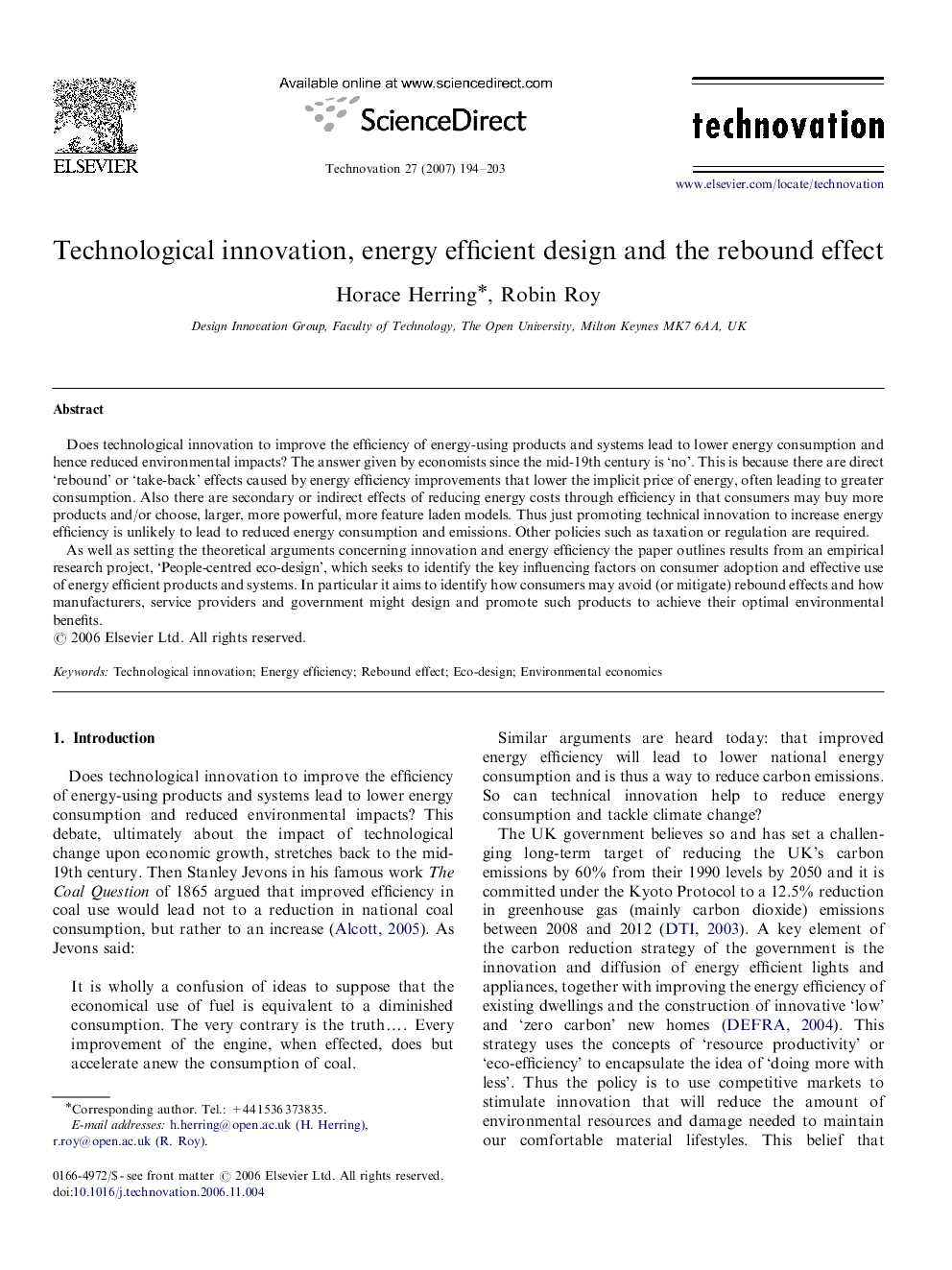| کد مقاله | کد نشریه | سال انتشار | مقاله انگلیسی | نسخه تمام متن |
|---|---|---|---|---|
| 1022697 | 941375 | 2007 | 10 صفحه PDF | دانلود رایگان |

Does technological innovation to improve the efficiency of energy-using products and systems lead to lower energy consumption and hence reduced environmental impacts? The answer given by economists since the mid-19th century is ‘no’. This is because there are direct ‘rebound’ or ‘take-back’ effects caused by energy efficiency improvements that lower the implicit price of energy, often leading to greater consumption. Also there are secondary or indirect effects of reducing energy costs through efficiency in that consumers may buy more products and/or choose, larger, more powerful, more feature laden models. Thus just promoting technical innovation to increase energy efficiency is unlikely to lead to reduced energy consumption and emissions. Other policies such as taxation or regulation are required.As well as setting the theoretical arguments concerning innovation and energy efficiency the paper outlines results from an empirical research project, ‘People-centred eco-design’, which seeks to identify the key influencing factors on consumer adoption and effective use of energy efficient products and systems. In particular it aims to identify how consumers may avoid (or mitigate) rebound effects and how manufacturers, service providers and government might design and promote such products to achieve their optimal environmental benefits.
Journal: Technovation - Volume 27, Issue 4, April 2007, Pages 194–203